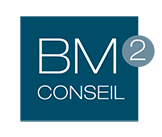Content
If you experience any symptoms of dependence, once you stop or cut back your drinking, you might need specialist treatment or ongoing support to prevent going back to heavy drinking. Research has shown that professional help improves your ability to overcome an addiction to alcohol or cut back if you have found it difficult. The most common research technique among those surveyed is an internet search (61%), followed by asking a doctor or medical professional (55%). If you’re relying on internet searches to find potential treatment centers, make sure to ask these ten questions to find a licensed facility that can meet your needs. Alcohol withdrawal symptoms range in severity depending on how extensive the misuse behavior was.

Your health and wellness is unique to you, and the products and services we review may not be right for your circumstances. We do not offer individual medical advice, diagnosis or treatment plans. “Try doing a ‘dry’ month like Dry January, Go Dry for July or Sober October,” says Moore. In January 2020, more Selecting the Most Suitable Sober House for Addiction Recovery than 6 million people reportedly participated in Dry January, a campaign to reduce alcohol consumption organized by Alcohol Change UK. Follow-up research suggested that most tended to drink in healthier amounts afterward. If you answer “yes” to two to three questions, your symptoms align with mild AUD.
Ways to Cut Back on Alcohol Consumption
However, they may still decide that tapering down feels most achievable for them. If you’re not sure if cold turkey or tapering is right for you, you can join the Monument Community to hear from others who have confronted similar questions. The tapering down process can take place for the first several weeks or even months of the alcohol recovery timeline. There are many factors that can affect how long weaning off alcohol will take. Other people use medication-assisted treatment, which can help reduce alcohol cravings as you cut back. Lastly, engaging in alcohol therapy can also make a major difference in your healing journey.
Can you reverse damage if you stop drinking?
After drinking stops, damaged organs may regain partial function or even heal completely, depending on the extent of organ damage and whether there is relapse (i.e., resumption of drinking).
I watch clients walk through the door, broken, and still remember when it was I who felt hopeless. After learning the necessary coping skills and engaging in a 12-step fellowship, my life began to change, and only for the better. I now enjoy working with others and helping them get through the hard times of early recovery. I still engage in a daily program of recovery myself and also enjoy fitness and health, nature, sports, horror movies, video games, cooking and spending time with family and friends. I have been on both sides of the fence, active addiction and recovery, and continue to choose recovery every day. Sydney Tubbs is a driven and compassionate Operations Director at The Freedom Center.
Decrease the risk of heart disease
Chronic alcohol use can cause complex changes in their brain, including to the neurotransmitters dopamine and gamma-aminobutyric acid (GABA), which affect excitement and a person’s sense of reward. It can be difficult to say no to people, especially when they care about you. This is why it’s essential to surround yourself with the right support system, such as a 12-step community that can help you maintain your progress. Hopefully, this self assessment has helped you to evaluate your use and make decisions that will best work toward your success as a student, as a leader within your community, and as a family member. The site provides self-help tips and strategies that can aid you in quitting. “Again, depends on what the baseline alcohol consumption is,” she said.
- The most common include hallucinations and memory loss and psychosis.
- Caffeine will only make you feel more irritable and may well interfere with your sleep.
- People may seem more accepting or less judgmental, and you might feel you “fit in.” You may convince yourself that experiences are more enjoyable and conversation more relaxed.
- I still engage in a daily program of recovery myself and also enjoy fitness and health, nature, sports, horror movies, video games, cooking and spending time with family and friends.
- Medical detox is then followed by inpatient and outpatient rehab to help you maintain your sobriety over the long term, and medication-assisted treatment may be prescribed as medically appropriate.
- Alcohol withdrawal syndrome occurs when a person with alcohol use disorder stops or suddenly decreases their alcohol intake.
That’s because it slows down the rate at which your brain functions. If you drink too much, too often, your brain and liver get used to having alcohol in the blood. If you go to the hospital for another reason, tell the providers if you’ve been drinking heavily so they can monitor you for symptoms of alcohol withdrawal.
Pros & Cons of Ambien For Insomnia During Alcohol Withdrawal
Working with a physician on the Monument platform can help determine what timeline will work for you based on your past drinking habits and risk of withdrawal. Whatever schedule is chosen, it’s important to commit so you can build upon your progress and avoid withdrawal symptoms as much as possible. Because alcohol withdrawal symptoms can be life-threatening in some cases, safety is crucial when you work towards sobriety. Little scientific evidence exists regarding tapers, but medical detox has been proven to be a safe and effectiveway to quit drinking.
How long does it take to reverse alcoholic?
Maintaining sobriety for 5-7 years is the peak time where reversible changes can occur. However, most change usually takes place in the first year. Any further damage due to alcohol abuse is retracted if one stops drinking. Still, many brain changes can't be eliminated.
Over the course of the first few days and weeks after someone stops drinking alcohol, he or she may experience acute alcohol withdrawal symptoms. Acute alcohol withdrawal syndrome refers to the common withdrawal symptoms a heavy drinker experiences when they suddenly reduce the amount of alcohol they drink after prolonged periods of heavy use. During this time, you’re most at risk of temporarily losing consciousness, developing delirium tremens, and having seizures.
Being a person in long term recovery, Erin wanted to give back and help those struggling with the disease of addiction. Erin decided to switch careers and went back to school to obtain her Addiction Counseling certification. In addition, to being a certified Addictions Counselor, Erin is a Certified Peer Recovery Specialist (CPRS), and a Registered Peer Supervisor (RPS). As you navigate this question, it can be helpful to think about how you typically prefer to approach change. Metaphorically speaking, do you like to dip your toe in first, or cannonball right in?

If the alcohol is withdrawn suddenly, the brain is like an accelerated vehicle that has lost its brakes. Not surprisingly, most symptoms of withdrawal are symptoms that occur when the brain is overstimulated. People having experienced alcohol withdrawal may suffer from sleep problems or minor signs of an overactive nervous system, such as fastened heartbeat, agitation, or sweats, for a few months. The alcohol-targeted acupuncture cut down on cravings and withdrawal symptoms better than the sham treatment. If you are struggling to stop drinking alcohol on your own, you can find support online with peer-to-peer meetings, virtual therapy, and online outpatient treatment.

Laissez un commentaire